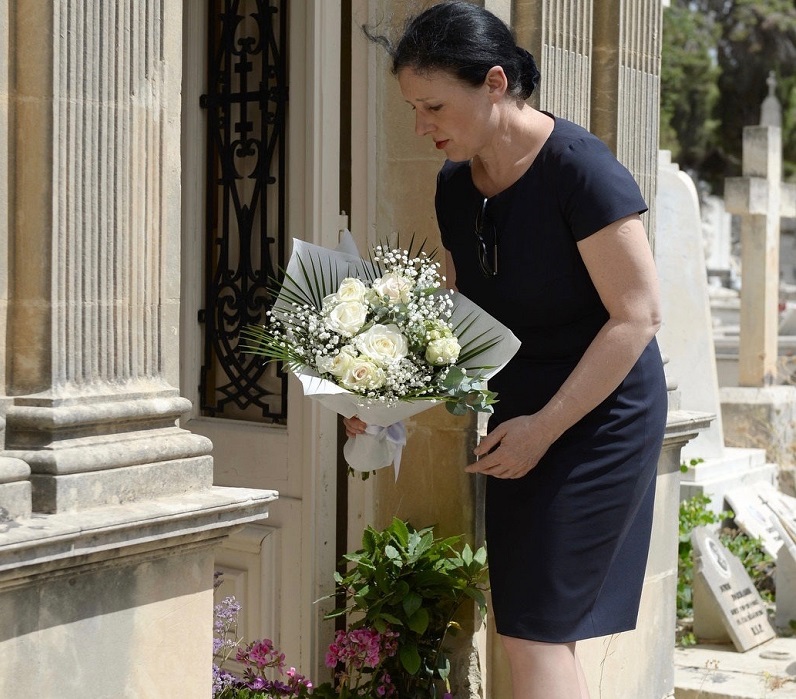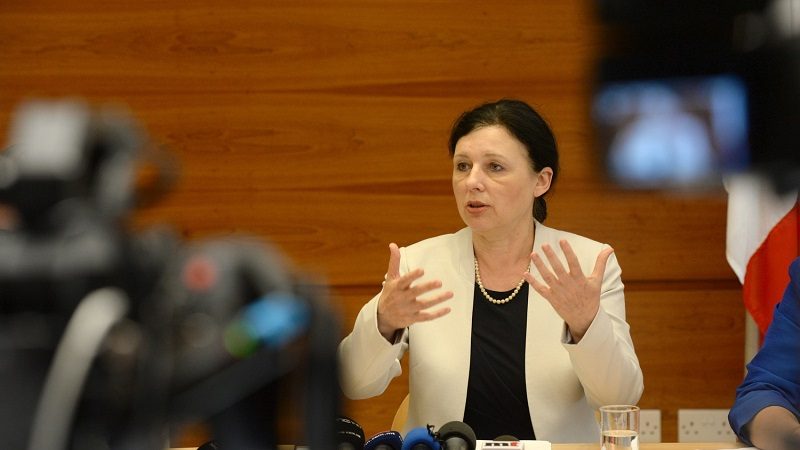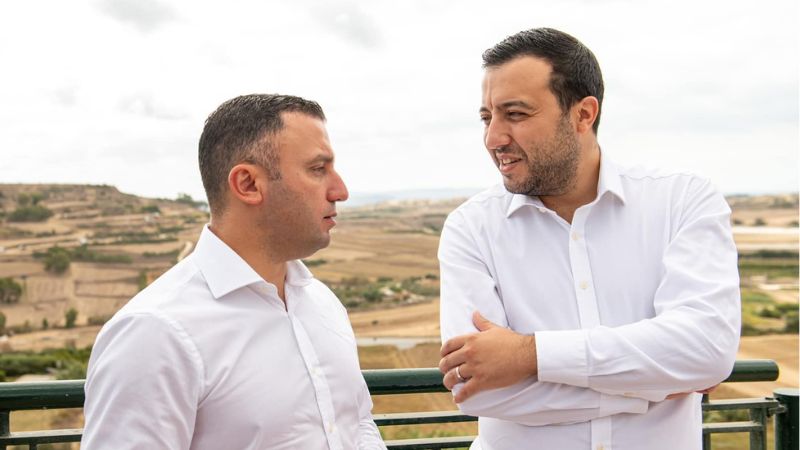Interview by Jane Whyatt
The Justice Commissioner of the European Union is offering support to police investigating the murders of journalists Daphne Caruana Galizia and Jan Kuciak. Commissioner Vera Jourová has been to Slovakia and Malta to pay respects to the investigative journalists who were killed for doing their jobs, and to bring the full weight of the European Commission to bear on the authorities responsible.
In this hard-hitting interview, she emphasises that there must be no impunity for those who ordered the killings and pays tribute to the work of Europe’s press freedom community.
Q: After visiting Slovakia and Malta, what is your impression of the way that the murders of Jàn Kuciak, Martina Kusnirova and Daphne Caruana Galizia are being investigated? What more could and should be done to bring to justice those who ordered the killings?
In both countries, I have met the responsible authorities, including investigators. My role as European Commissioner is not to intervene in judicial proceedings, which should be independent of politics, so I didn’t ask for confidential details of the investigation. But I was there to pass a clear expectation from the EU that the responsible national authorities should pursue all avenues in seeking justice and that they will bring the perpetrators to Court.
I was assured in both countries that they will keep on investigating, even if someone from the political sphere turned out to be involved, but of course the deeds will matter more than words here.
I have also offered support from the EU through the agencies Europol and Eurojust, which support police and judicial co-operation between Member States. This can be very useful especially in case these assassinations and their wider context have some cross-border aspects, which seems to be the case. In fact, Europol is already supporting Malta and Eurojust has facilitated cooperation between Slovakia and Italy.
Q: To what extent are these assassinations a cause for concern about the rule of law in Slovakia and Malta?
I am deeply concerned about these murders because independent media plays a crucial role in any democracy. Journalists are key partners in maintaining an open society and for upholding the rule of law.
Murders of journalists cannot be tolerated in the EU. They are also a sign that something is not right; some politicians don’t hesitate to attack journalists and it creates an atmosphere that authorises violence against journalists. These attacks are often online, but these murders are the result in the real world of this violence. As politicians, we might not always like what journalists write, but it is our obligation to defend their right to write also what we don’t like. It is also our duty as politicians to defend the journalists’ space to do their job.
Some politicians don’t hesitate to attack journalists and it creates an atmosphere that authorises violence against journalists
Q: In February (2017) Daphne Caruana Galizia gave evidence to a fact-finding mission of MEPs in Malta and told them that she was being threatened. We know that her family and supporters are also at risk. So what more can the EU Commission and Parliament do to protect them and the organisations that exist to help them?
I’ve spoken to Daphne Caruana Galizia’s family and my doors are open to them. On the EU side we should continue to closely monitor developments and maintain political pressure. The best that can happen is that the masterminds of this assassination are caught. But I also have huge appreciation for the many journalists who continue the investigative work of Caruana Galizia, including in areas under my remit such as the fight against money- laundering. I think this is very important for Malta, but also the whole EU. The EU should also continue to support media freedom and I hope the new EU budget will reflect that. Projects like the European Centre for Press and Media Freedom can make an important difference.

EU Commissioner Vera Jourova lays flowers at the grave of murdered journalist Daphne Caruana Galizia in Marsa, Malta on June 15. Photo: EU Commission
Q: Journalists are collaborating across national borders despite commercial competition between their employers to investigate corruption and money laundering. For example, the Daphne Project recently published its results. How important is investigative journalism to the European Union’s mission to end fraud and the illegal trade in passports?
Journalists have played a key role in denouncing and uncovering financial crime. The Panama Papers showed the extent of this problem.
The European Commission is treating this as a priority: we are reinforcing the structures to fight financial crime. We proposed the 5th Anti-money Laundering Directive in July 2016, as a reaction to the Panama Papers revelations. This Directive has now been approved by the EU Member States and the European Parliament, and will enter into force on 9 July. They have also just agreed new rules on the confiscation and freezing of criminal assets. This is very important as around 99% of criminal assets in Europe are never confiscated. We have to put an end to this impunity.
I am also pleased that both Malta and Slovakia are joining the European Public Prosecutors’ office, which will be in charge of investigating and prosecuting fraud against EU funds.
Daphne Caruana Galizia and Jan Kuciak have paid with their lives. I’m glad their colleagues are continuing their work, but it is also our role as politicians to have the right structure in place to prevent and combat financial crime and to ensure the responsible institutions are able to their work.
There shouldn’t be a “ministry of truth” that decides what is fake news and what is not
Q: An important part of your remit is to defend the rights of consumers, and this includes consumers of news. Citizens need accurate information and a diverse range of opinions in order to exercise their democratic rights. Please outline your views on how best to support quality journalism and discredit fake news.
Fighting fake news can become a slippery slope, for freedom of expression is thin. Having lived under a communist regime for a large part of my life, I’m very careful. There shouldn’t be a “ministry of truth” that decides what is fake news and what is not. (Editor’s note: Jourová is a lawyer from the Czech Republic).
However, we do need to find way to identify and tackle disinformation campaigns, including those coming from third countries, that aim to destabilise our democracies.
A challenge I see today is that the space for independent quality media is shrinking. I’m worried in some countries – the public media is captured by the political sphere in power and used for their own interests and on the other side extremist parties are driving polarised debates on social media.
We have to continue the discussion on this, we want journalists’ work to be financed by independent sources, and we want to keep this journalism alive. The economic pressure on media is almost as dangerous as political pressure and when there is a mix of both, the situation becomes very dangerous.
We are dedicating our annual Fundamental Rights Colloquium next November to democracy and I want to dedicate a part of it to the role of media and journalism as guarantors of a vibrant democracy.
This was first published by the European Centre for Press and Media Freedom and is it being re-published with their permission.












